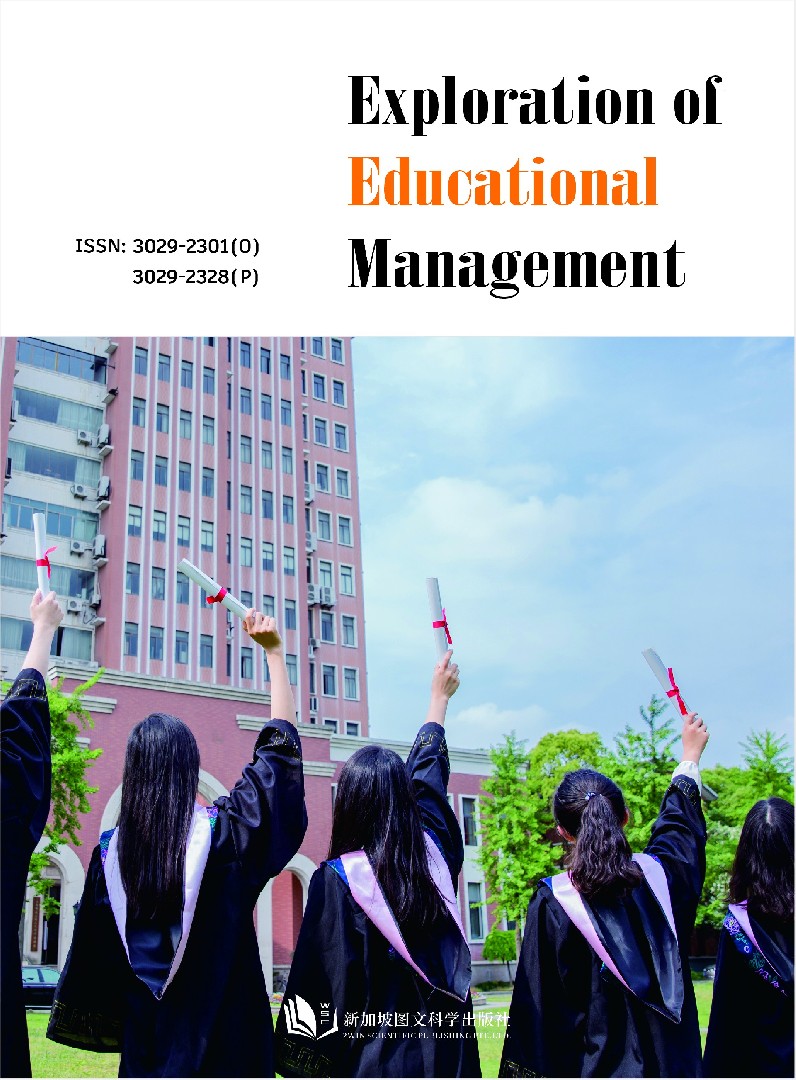作者
Shiyun Xu
文章摘要
This study randomly sampled 959 college students from an undergraduate university in Jiangsu Province by questionnaire survey. The relationship between college students' sense of meaning of life and mental toughness was explored by using the Psychological Resilience Scale (CD-RISC), the sense of Meaning of Life scale (MLQ), and the Perceived Social support Scale (PSSS). And the mediating mechanism of perceived social support in this relationship. The results showed that :(1) Internet addiction measured early predicted overall academic stress, sleep quality and self-control measured later; (2) Self-control could independently mediate the relationship between Internet addiction and academic stress; (3) Sleep quality and self-control could mediate the relationship between Internet addiction and academic stress. The results of this study suggest that sense of meaning in life is a significant direct predictor of psychological resilience, and this association mechanism can be further explained by perceived the mediating effect of social support. In educational practice, educational interventions to strengthen the sense of meaning of life and enhance individuals' subjective feelings and perceived of social support resources are important ways to effectively enhance mental toughness and promote individual mental health.
文章关键词
meaning in life; psychological toughness; perceived social support; mediating effect
参考文献
[1] Connor K M, Davidson J R T. Development of a new resilience scale: The Connor-Davidson Resilience Scale (CD-RISC)[J]. Depression and Anxiety,2003, 18:76-82.
[2] SHU Yacong, Yang Jia, Yang Shaoyun, et al. The effect of social support on anxiety of college students during the control of COVID-19: the chain mediating role of self-esteem and psychological resilience[J]. Chinese Journal of Clinical Psychology, 21,29(6): 1333-1336, 1342.
[3] Lu Chang, Zhou Shuyi. A study on the mechanism of college students' mental resilience during the COVID-19 epidemic -- from the perspective of positive psychology[J]. Western Journal, 2019,8(22): 107-110.
[4] Sun Dao-kai, Yu Ru-ying, Lv Le, et al. Anxiety of college students and its influence and protective factors under the background of major epidemic crisis [J]. Journal of Southwest Normal University (Natural Science Edition), 201,46(10): 121-128.
[5] Zhang Xinling, Guo Linglong, Sun Youran. How to improve college students' adaptability and happiness of returning to school during the novel coronavirus pneumonia epidemic: An empirical and psychological resilience analysis [J]. Campus Psychology, 2021, 19(1): 8-14.
[6] Lopez, Shane J., C. R. Snyder (eds), Oxford handbook of positive psychology[M]. New York: Oxford University Press,2012.
[7] Tan Huayu, Li Guangming. The Relationship between college students' sense of life meaning and boredom: the mediating effect of psychological resilience [J]. Journal of Educational Scholarship,2019,36(2):92-97.
[8] Zheng Ya Nan, Li Xiaoyu. Investigation and analysis of the relationship between mental health, mental resilience and sense of life meaning of senior medical students [J]. Health Vocational Education,2023,41(16): 153-156.
[9] Sarason, B. R., Pierce, G. R., Shearin, E. N., et al. Perceived social support and working models of self and actual others[J]. Journal of Personality and Social Tended, 1991, 60 (2) : 273-287.
[10] Yu Xide, Liu Jiafan, Li Jingjing, et al [J]. Medicine and Society, 2019,35(11): 106-110. (in Chinese).
[11] Cohen S, Wills TA. Stress,social support, and the buffering hypothesis[J]. Psychol Bull,1985,98(2):310-357.
[12] Stavrova O, Luhman M. Social connectedness as a source and consequence of meaning in life[J]. The Journal of Positive Psychology, 2016, 1(5):470-479.
[13] Yu Xiaonan, Zhang Jianxin. A comparison between self-resilience scale and Connor-Davidson Resilience Scale [J]. Psychological Science,2007,44(5): 1169-1171.
[14] Liu Sisi, Gan Yiqun. The reliability and validity of the Chinese version of sense of Life scale in college students [J]. Chinese Journal of Mental Health,2010,24(6):478-482.
[15] Yan Baobin, Zheng Xue. Research on the relationship between Social support, self-esteem and subjective well-being of college students [J]. Psychological Development and Education,2006,22(3):60-64.
[16] Lai Xuefen, Liu Wangli. Correlation analysis of life meaning and psychological resilience of college students [J]. Chinese Journal of School Health,2012,33(11): 1374-1375.
[17] Feng Biao, Li Zonglong, Wang Kaixin, et al. The relationship between life goals and mental resilience of college students: the multiple mediating roles of self-control and general self-efficacy [J]. Psychological Research,2022, 15(1):78-85.
[18] Zhang Rongwei, Li Dan. How to live a meaningful life? -- Integration of theoretical models based on the meaning of life [J]. Advances in Psychological Science,2018,26(4):744-760.
[19] He L. Study on the relationship between Resilience and self-esteem, social support and self-efficacy of migrant children [J]. Journal of Capital Normal University (Social Science Edition),2015,43(3): 120-127.
[20] Ma Wenyan, Gao Peng, Huang Dawei, et al. The impact of alienation on psychological resilience of left-behind adolescents: perceived the chain mediating role of social support and self-esteem [J]. Chinese Journal of Health Psychology, 202,30(1): 148-152.
[21] Zhou X C, Hou X, Wang W W. Study on improving the resilience of migrant children from the perspective of ecosystem. Chinese Youth Social Sciences, 2019,39(2): 97-105.
[22] Masten AS.Ordinary magic: Resilience processes in development[J]. American Psychologist, 2001,56(3):227-238.
[23] Leffert N, Benson P L, Scales P C, et al. Developmental Assets: Measurement and Prediction of Risk Behaviors among Adolescents[J]. European Journal of Orthodontics,1998,2(4):209-230.
[24] Theokas, C., Almerigi, J. B., Lerner, R. M., et al. Conceptualizing and modeling individual and ecological asset components of thriving in early adolescence[J]. Journal of Early Adolescence,2005,25(1): 113-143.
Full Text:
DOI
